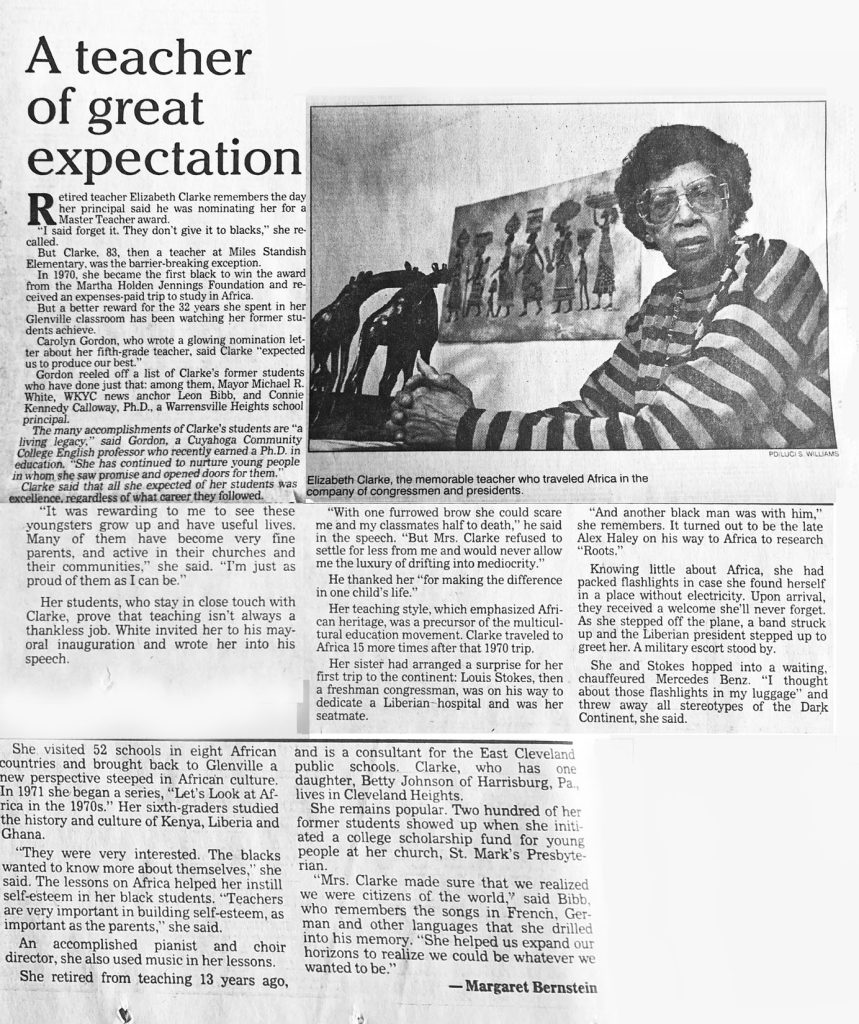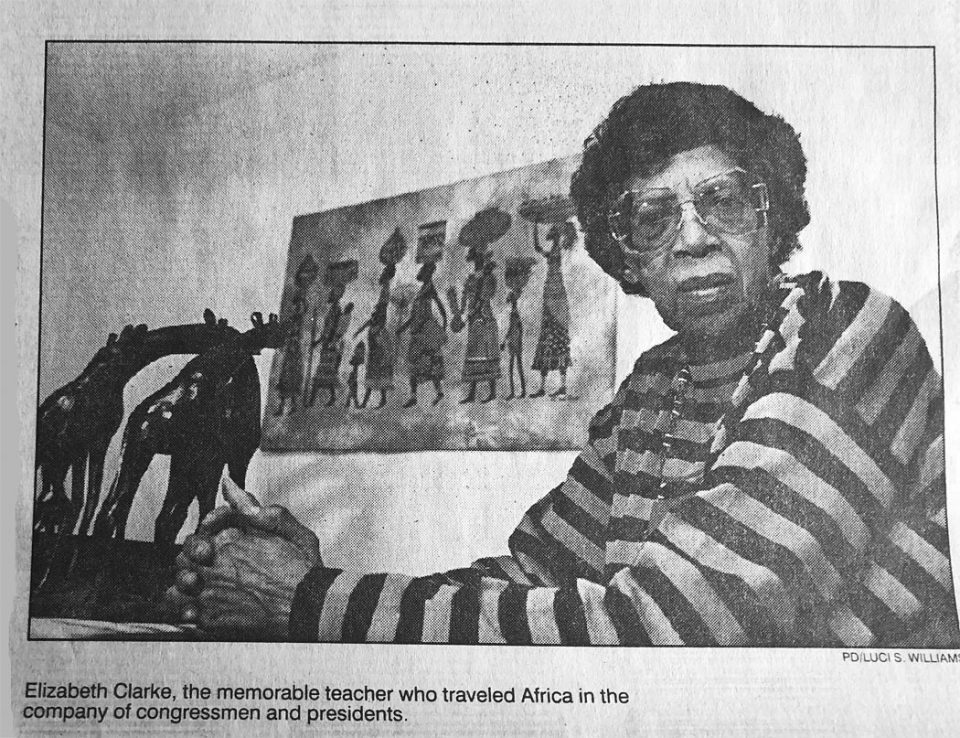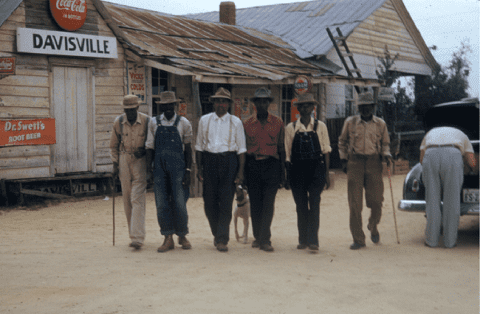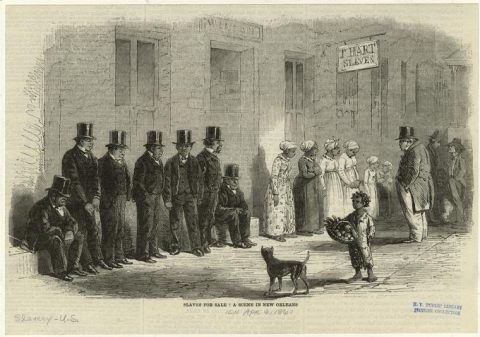While cleaning a closet I found this article from the Plain Dealer about my 6th grade teacher Elizabeth Clarke. Mrs. Clarke was legendary in many ways. As the teacher of more than a generation of successful African Americans in Cleveland, her success with students was no accident. As a teacher at Miles Standish Elementary School in the Glenville neighborhood where I grew up, she taught many of my family and friends including two of my brothers and my wife. She also has taught a who’s who of African American success stories in Cleveland including TV personality Leon Bibb, prominent attorney Inajo Davis Chappell, Judge Ray Headen, former Mayor Mike White, and many others.

Mrs. Clarke demanded success and expected it of all of her students. She was incredibly strict and ruled by intimidation and ridicule . . . which in my case was the perfect motivation. We were told we were better than the other students in the school and we needed to act like it, we were in “Mrs. Clarke’s class.” Even within the class, she had her favorite students and everyone knew their status. I was one of her favorites as was Inajo, Ray, Miles Roach and others. My brothers and others were not so lucky.
The basics plus more . . .
Mrs. Clarke insisted we learn the educational basics of elementary school as fast as we could. Simply learning the multiplication tables was unacceptable, we needed to learn and recite them in lightning speed. Stuttering, or breathing for that matter, meant we had to see her exasperation and start again from the beginning. I can still recount those tables in my head when needed.
Diagramming Sentences
We also had to learn to diagram sentences which apparently had been a long abandoned approach to grammar, but not in Mrs. Clarke’s class. We all strove for her complimentary comments on our homework: “Very Excellently Done!” I’ve embedded a video of diagramming sentences for those of you unfamiliar.
“What does Africa mean to me?”
Most important in her class was to learn a deep appreciation for the continent of Africa. As the PD article describes, she won a paid excursion to Africa as a Master Teacher and continued to go whenever she could. Because of her stern nature, she didn’t smile much, but when she did, Africa was likely the topic of discussion. Annually, she would put together a student performance that educated students at other schools about the rich culture, values, and contributions of our African heritage. Like everything else, that performance had to be perfect every time . . .and it was. We were also the children of Africa and needed to represent that continent impeccably.

47 years later, here I am writing about a truly masterful teacher who made an indelible mark in the lives of many. Her approaches to teaching would surely not be allowed today. Her deviation from the standard 6th grade curriculum, blatantly “having favorite students”, discounting other students as not as good, and using fear as a primary motivation to learn, would all draw stern criticism from today’s educational leaders.
But the fact remains that Elizabeth Clarke, the Master Teacher, set a path for our success that was deliberate and incredibly impactful. She laid the foundations for learning and the expectation for excellence that many of us carry to this day. There may have been other students that needed a different method for learning, or a more loving approach, but that was never her intention. She unapologetically demanded superiority of her students and accepted nothing less.
For my life, and the lives of a few others, Mrs. Clarke was exactly what we needed to build our self-confidence, to gain appreciation for our heritage, and to carry and exemplify that pride and expectation of more, to the next generation.
For that, we say “Very excellently done, Mrs. Clarke.”








